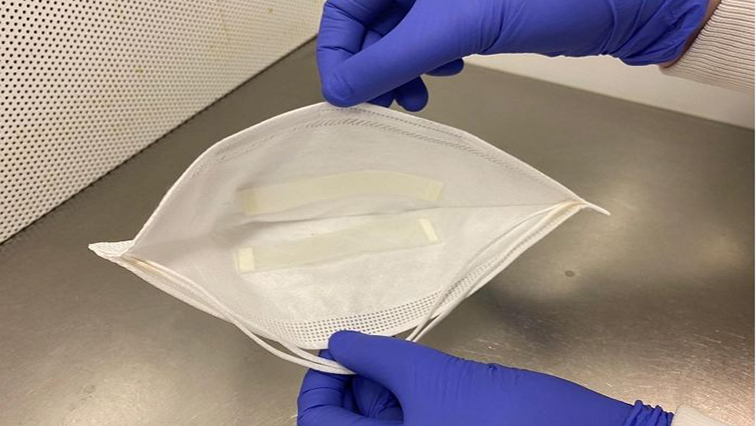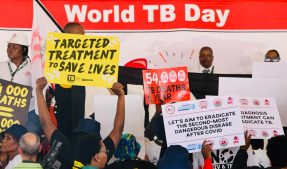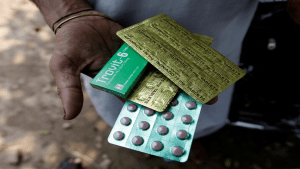South African and United Kingdom researchers have developed a new technique to detect tuberculosis (TB) through a face mask with a 3D-printed insert. This new method is expected to detect millions of missed infections across the world.
The new invention comes as the country marks TB Awareness Month.
Currently, the disease is diagnosed with a blood test, chest X-ray, phlegm sample and in some cases, a bronchoscopy and one of the most common symptoms is a persistent cough with phlegm.
TB causes more deaths due to infection than any other bacteria globally. According to the World Health Organisation, 301 000 people in the country fell ill with TB and 64 000 died from it in 2018. TB newly affects 10 million people worldwide, every year.
Head of Infectious Diseases at the University of Pretoria, Prof Anton Stoltz says the mask can catch the TB bacteria after people who may be infected have worn and breathed on it for just 30 minutes.
In the video below, Head of Infectious Diseases at the University of Pretoria, Prof Anton Stoltz explains how the mask works:
‘Missing millions’
Stoltz says there are the people that have TB but are not aware and are not diagnosed. He says, “There are a lot of people that are walking around with TB disease that we do not know. Now because TB only divides once every 24 hours plus-minus, you inhale the bacillus, slowly but surely what will happen is that the amount of bacillus in your lungs will increase and as you get in more and more, you actually don’t notice it really and you’re not coughing in the beginning.”
“As you have the infection, what will happen is that you exhale it and then you can infect other people. We think there is a huge amount, millions of people walking around with TB infection and they don’t even know they have got it.
“So those are the people that we would like to see because they don’t have all these severe symptoms of night sweat, coughing, weight loss and we think those are the people we need to get because they actually transmit TB without knowing it,” Stoltz explains.
Stoltz expounds how the idea was conceived:
Affordable mask
Stoltz says the mask is affordable. “So we can use any mask, we can use a dusk mask, it is just something to put over the month that the whole process of small particles coming out of the mouth is in the area, so it’s very cheap, we freely print it, that is just to make sure that we have a good surface which we could adhere to these small particles which come out of your mouth.”
In the video below, Stoltz explains that they tested the musk on patients in Tshwane:
Invention
Stellenbosch University Professor at the Division of Molecular Biology and Human Genetics, Prof Grant Theron welcomes the invention, saying there is a need to detect TB that does not depend on fluids like sputum.
He says, “In TB, we desperately need ways of detecting TB that does not depend on fluids like sputum which are very difficult to access and many people with TB cannot make sputum. The fact that they have shown and that this proof of concept works that we can accurately detect TB in the breath and cough droplets from people with symptoms potentially open up a lot of avenues for diagnosing TB in patients that would not be possible.”
In the audio below, Prof Theron on the mask at the primary healthcare level:
Drug resistance TB in SA
Stoltz says South Africa has a huge amount of drug resistance TB. “So TB is well and alive in South Africa and we do think if we start looking for TB we will find many more cases.”
In the video below, Stoltz discusses the state of TB in South Africa at length.






